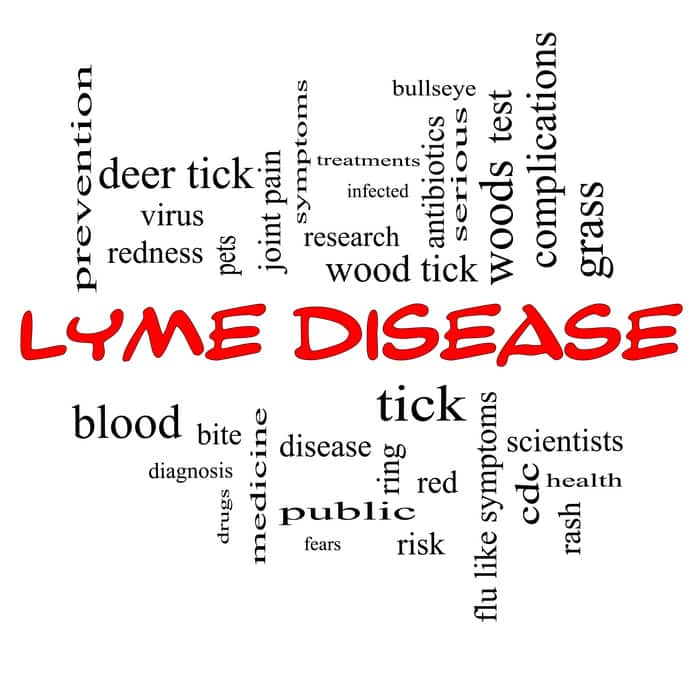
What Is the Role of Nutrition in Lyme Disease Treatment?
While there’s no miracle food to treat any illness, optimizing nutrition can help individuals manage symptoms of Lyme disease more easily. A well-balanced and nutrient-rich diet is vital for supporting the body’s immune system, which is often compromised by the effects of Lyme disease. Essential nutrients, like vitamins C and D, zinc and omega-3 fatty acids, contribute to overall immune function, helping the body to better defend itself against the bacterial infection.
Adequate nutrition boosts the fatigue associated with Lyme disease, providing the energy and resources necessary for the body to cope with the demands of daily life while undergoing treatment.
Prioritize Anti-Inflammatory Foods
Lyme disease is an inflammatory illness, so prioritizing foods with anti-inflammatory properties is key. Inflammation joint pain and fatigue, making daily activities overwhelming. To counteract this, focus on incorporating anti-inflammatory foods into your meals.
Start by adding a colorful variety of fruits and vegetables to your meals. These plant-based foods are rich in antioxidants, such as vitamins A, C and E, which help combat oxidative stress and reduce inflammation. Berries, particularly blueberries, are known for their potent anti-inflammatory properties, thanks to the presence of compounds like anthocyanins.
Leafy greens, like spinach, kale and Swiss chard, are excellent sources of vitamins, minerals and phytonutrients that promote anti-inflammatory effects. These greens are nutrient-dense and provide fiber, which supports gut health. A healthy gut is vital for modulating the immune system and managing inflammation.

Incorporate fatty fish into your diet, such as salmon, mackerel and sardines, which omega-3 fatty acids. Researchers have studied omega-3s extensively for their anti-inflammatory properties and they’re known to help regulate the immune response. Additionally, eating a three-ounce serving of fatty fish once to twice a week can reduce the risk of dying from heart disease by 36%.
If you’re a vegetarian or vegan, consider plant-based sources. These could include:
- Chia seeds
- Flaxseeds
- Walnuts
- Soybeans
- Hemp seeds
- Spinach
- Brussels sprouts
Turmeric and ginger, both renowned for their anti-inflammatory and antioxidant properties, can be valuable additions to your meals. These spices contain bioactive compounds, curcumin in turmeric, that may reduce inflammation. Add them to sauces, curries, smoothies or soups or enjoy them as teas for an extra boost.
Be mindful of your cooking oil as well. Choose healthier alternatives like olive oil, which contains monounsaturated fats anti-inflammatory effects. Limit your intake of oils high in omega-6 fatty acids, like vegetable and sunflower oils, as an imbalance between omega-3 and omega-6 can contribute to inflammation.
Support Your Gut Health
Many people with Lyme disease experience gastrointestinal manifestations. A healthy gut and good nutrition boosts a robust immune system. Including probiotic-rich foods like yogurt and fermented foods like sauerkraut, kefir and kimchi in your diet can enhance the balance of beneficial bacteria in your digestive system. These probiotics improve immune function, helping your body defend against infections and manage symptoms.
Choose Nutrient-Dense Foods
Lyme disease can deplete your body of essential nutrients, making it crucial to focus on nutrient-dense foods. Opt for a variety of whole foods, such as lean proteins, whole grains, nuts, and seeds, to ensure you’re getting a wide range of vitamins and minerals. Adequate levels of nutrients like vitamin C, vitamin D and zinc are particularly important for supporting your immune system.
Stay Hydrated
You may overlook hydration but it plays a vital role in supporting your body’s overall function. Drinking an ample amount of water helps flush out toxins, aids digestion and maintains optimal bodily functions. Aim for at least 15.5 cups of water a day for men and 11.5 for women. Consider adding herbal teas and broths for extra hydration and immune-boosting benefits.
Manage Sugar Intake
Excessive sugar consumption can contribute to inflammation and weaken your immune system. To deal with fatigue and support overall health, reduce your intake of refined sugars and processed foods. Instead, choose natural sweeteners like honey or maple syrup in moderation, and satisfy your sweet tooth with fresh fruits or dark chocolate.
Consider Supplements
In addition to a well-balanced diet, consider adding supplements to address specific nutrient deficiencies associated with Lyme disease. Consult your health care provider to determine which supplements may be beneficial for you, like omega-3, vitamin D or probiotics.

Which Foods Should You Limit?
You are what you eat, as they say. While proper nutrition boosts fatigue, certain foods may contribute to feelings of tiredness and low energy levels, and those with Lyme disease should be mindful of their diet to mitigate these effects. Here are some foods you should consider moderating or avoiding:
- Highly processed foods: Foods high in refined sugar and processed carbohydrates can cause rapid spikes and crashes in blood sugar levels, leading to fatigue. These foods include sugary snacks, candies, pastries and white bread. Choose whole grains and complex carbohydrates to maintain stable energy levels.
- Caffeine and energy drinks: While moderate caffeine consumption can provide a temporary energy boost, excessive intake, especially from energy drinks, can lead to dehydration and disrupt sleeping patterns, contributing to fatigue. Limit caffeinated beverages, particularly in the afternoon and evening.
- Fatty and fried foods: High-fat meals, especially those high in saturated and trans fats, can slow digestion, contribute to inflammation and make you feel sluggish. Choose lean protein sources and add healthy fats, or Superfoods, like avocados, nuts, seeds and olive oil.
- Alcohol: Excessive alcohol consumption can disrupt sleep patterns and contribute to tiredness. Alcohol can also have dehydrating effects, leading to lethargy. It’s advisable to moderate alcohol intake and stay hydrated when consuming alcoholic beverages.
- Dairy products: Some individuals with Lyme disease may experience fatigue and digestive issues due to lactose intolerance or sensitivity to dairy products. If you suspect dairy may be affecting you, consider trying lactose-free alternatives.
- Certain artificial sweeteners: Some individuals may be sensitive to certain sweeteners. Pay attention to how your body reacts to these additives and switch to natural sweeteners.

Feel Energized
While living with Lyme disease presents its challenges, empowering yourself through nutrition can make a significant difference in managing symptoms and supporting your body’s natural defenses. It’s essential to consult your health care provider to help you create a personalized nutrition plan that aligns with your unique needs and circumstances.
Written in collaboration with by Mia Barnes of Mind+Body Magazine



















